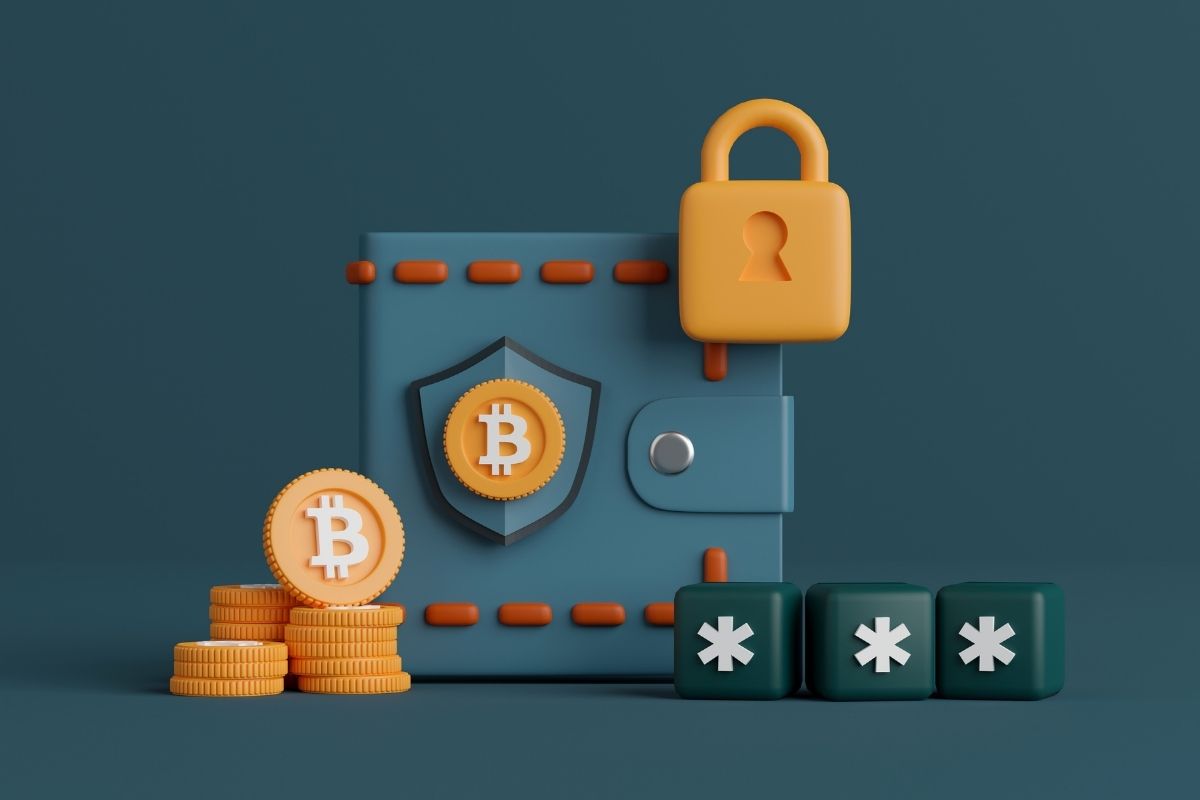Ways of Protecting Your Cryptocurrency Wallet
- May 17, 2022
- Jennifer Moore

Owning crypto is a big leap in the alternative investment realm. If this wasn’t enough, it comes with the additional headache of safe storage of the purchased crypto. A number of exchanges offer wallets for storage. The wallets can be custodial and non-custodial. We’ll go over the custodial and non-custodial wallets in the following sections. However, the issue we’re dealing with is the safekeeping of the crypto and protecting it from external threats. Cryptocurrency are normally to store in wallets.
Cryptocurrency Wallets
Wikipedia defines a cryptocurrency wallet as a “device, physical medium, program or a service” in which owners store the public and/or private keys for cryptocurrency transactions. Additionally, a cryptocurrency wallet often extends the functionality to encrypting and/or signing information.
A cryptocurrency wallet functions on a theoretical or random number and in use with a length to determine by the algorithm size of the cryptocurrency’s technology requirements. This number is then hashed into a private key according to the specific demands of the employed cryptography algorithm. Next, a public key is generated from the private key using the employed cryptographic algorithm requirements. The private key allows the owner to access and to send cryptocurrency. It is private to the owner. The public key is meant to be shared with any third party to enable them to send payments in cryptocurrency.
Till here, no computer or electronic device is in need. All key pairs can mathematically generate and note down by hand to safely store away. The private key and public key pair are known solely to the owner. The blockchain only records the transaction involving the public key when cryptocurrency is sent to it.
Non-Custodial Storage:
Non-custodial wallet service makes the owner fully in charge of storing and remembering their private keys and also assuming security measures to safeguard their funds. If the owner forgets their private keys, they lose access to their cryptocurrency — no exceptions.
Custodial Storage:
In the case of a custodial wallet service, a third party, such as exchanges like PayBitoPro, Kraken, or Gemini, maintains the control of an owner’s private keys.
This technically translates to the exchange owing to the owner the purchased amount of cryptocurrency until they decide to withdraw it. In practice, the owner has a sort of “IOU” for the cryptocurrency. While the exchange retains the private keys and holds the cryptocurrency in their wallet.
Also Read: The Importance of Crypto and Wallet Services for Developing Economies
Protecting the Wallet
Irrespective of where the owner decides on storing their cryptocurrency and private keys, they cannot be oblivious to the existence of malicious actors in the space. Among many different kinds of scams, a common variety is sim swapping.
Here’s how sim swapping happens:
When an individual signs up with an exchange, they get a username and password. Thereafter, they may add two-factor authentication, or two FA, to protect their account. If somehow, a hacker gets hold of the individual’s login information, they must also pass the two FA to gain access to your account. To achieve this, they call the individual’s network service provider convincing them to transfer their phone number to them. Unfortunately, it is not too difficult for them to get around the service provider, getting them to transfer the number. This is the reason why experts in this field forbid the use of SMS text messages for two FA.
For some exchanges, though, the SMS two FA is the only option. If one can’t avoid it, it is essential to call the service provider and request to add a password or other barrier to the crypto owner’s account.
Once a crypto owner selects a wallet service, its software often generates a unique seed phrase or a series of 12 to 24 random words. These words may be in use to recover your crypto wallet. The seed phrase must be completely private and in a secure location offline.
Finally, a Strong Skeptic
Skepticism is a positive trait when dealing with something as valuable as crypto. One should be calm and cautious when dealing with messages regarding their crypto. Alongside security measures, crypto owners should also remain alert and skeptical while receiving outside messages about their crypto wallets. It pays to maintain steady communication and a healthy relationship with the exchange. One should know of the various scenarios that may occur and not react impulsively or make nervous decisions.
Categories
- AI (6)
- Altcoins (10)
- Banking (10)
- Bitcoin (132)
- Bitcoin ETF (11)
- Bitcoin Price (30)
- Blockchain (47)
- Brokering World Hunger Away (16)
- Business (7)
- CBDC (11)
- COVID-19 (3)
- Crypto ATMs (1)
- Crypto Banking (15)
- Crypto Bill (1)
- Crypto broker platform (26)
- Crypto Investment (3)
- Crypto Markets (3)
- Crypto Payment (26)
- Crypto Prices (1)
- Crypto Trading (88)
- Cryptocurrency (365)
- Cryptocurrency Exchange (95)
- Data Visualization (2)
- Decentralized Finance (7)
- DeFi Payment (9)
- DEX (3)
- Digital Currency (22)
- Ethereum (2)
- FAQ (6)
- Finance (24)
- Financial Equality (4)
- Financial Freedom (8)
- Forex (24)
- ICO (1)
- Investment (11)
- Mining (3)
- News (64)
- NFTs (2)
- P2P (1)
- PayBitoPro (606)
- PayBitoPro Coin Listing (6)
- PayBitoPro Exchange (2)
- Post COVID Digital Transformation (1)
- Press Release (130)
- Privacy & Security (3)
- Real Estate (1)
- Stablecoin (4)
- Technology (14)
- Uncategorized (2)
- US Presidential Election (2)
- Utility Coin (1)
- Web3 Wallets (1)
- White Label Crypto Broker Solution (1)
- White Label Crypto Exchange (6)





